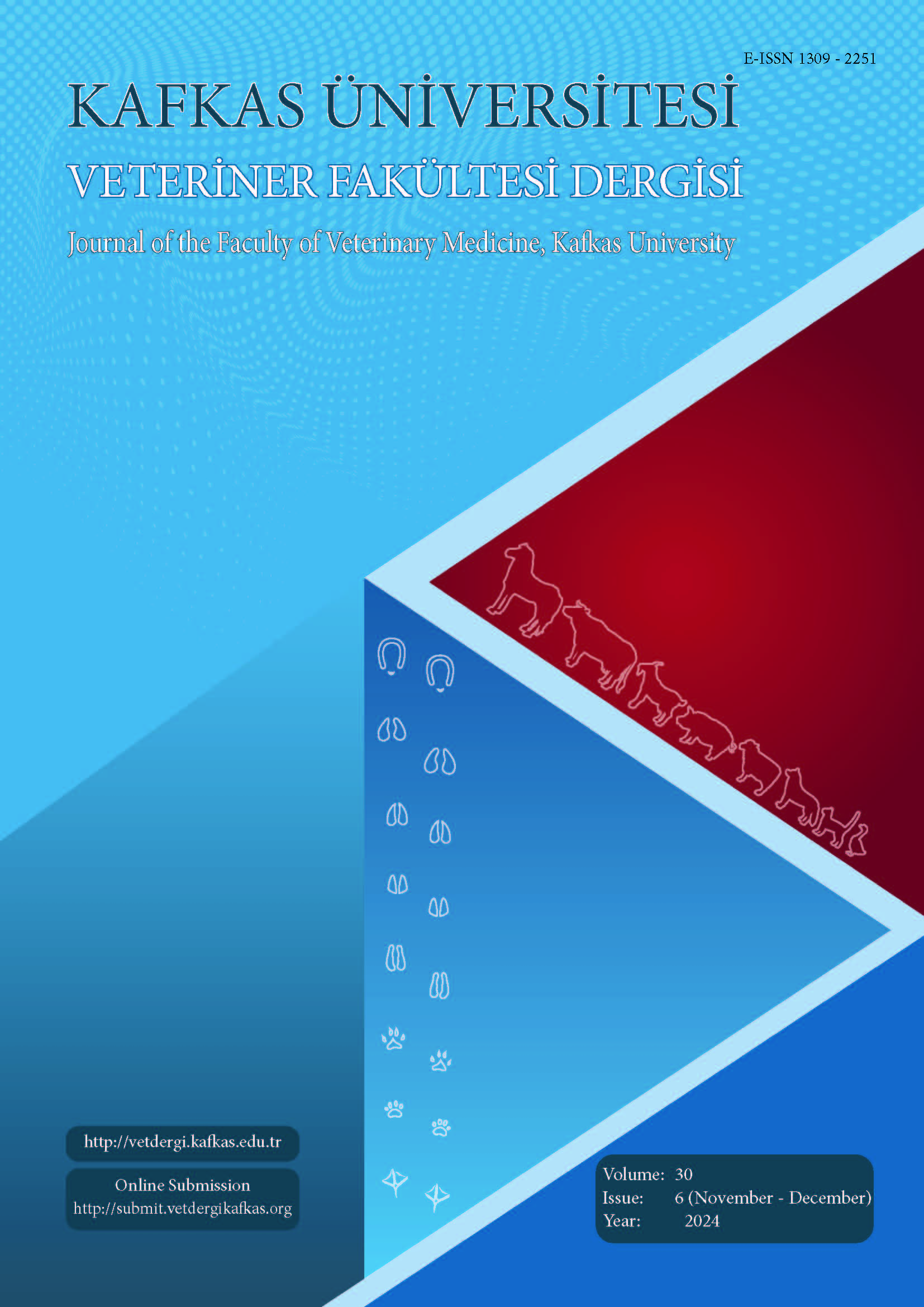
This journal is licensed under a Creative Commons Attribution-NonCommercial 4.0 International License
Kafkas Üniversitesi Veteriner Fakültesi Dergisi
2024 , Vol 30 , Issue 6
Molecular and Pathological Detection of Jaagsiekte Sheep Retrovirus in Lung Tissues of Sheep
1Kafkas University, Faculty of Veterinary Medicine, Department of Virology, TR-36300 Kars-TÜRKİYE2Kafkas University Faculty of Veterinary Medicine, Department of Pathology, TR-36300 Kars-TÜRKİYE
3Atatürk University, Faculty of Veterinary Medicine, Department of Virology, TR-25200 Erzurum-TÜRKİYE DOI : 10.9775/kvfd.2024.32702 Ovine pulmonary adenocarcinoma (OPA) is a disease of sheep that is caused by a Betaretrovirus named exogenous Jaagsiekte sheep retrovirus (exJSRV). This virus causes oncogenic transformation in lungs, and symptoms develop related to the growing tumors. Disease develops slowly with a long incubation time ranging 2-4 years. Currently there is no serological test to evaluate the presence in the flock and also disease can mostly be diagnosed post mortem. The aim of this study is to determine characterization and the molecular presence exJSRV types in circulation. In this study lung tissues of 25 suspected cases were investigated. Initial diagnosis is made by histopathological (HP) and immunohistochemical (IHC) methods. Hematoxylin & Eosin (H&E) staining was used for examining histopathological changes. Anti JSRV capsid antibody was used with Streptavidin-Biotin peroxidase method. Slides were examined under light microscope and photographs were taken. All 25 cases were diagnosed as OPA with these methods. Lung tissues embedded in paraffin were used as material for nucleic acid extraction. Envelope gene of JSRV nucleic acid was chosen for investigating with reverse transcription polymerase chain reaction (RT-PCR). Since paraffinized tissue blocks were used, sensitivity was not high and only 10/25 tissues were deemed positive. Positive amplicons were sent to sequencing. A phylogenetic tree was constructed after analyzing the sequences. Also predicted amino acid sequences were analyzed. In conclusion we found both type 1 and type 2 exJSRV have been circulating in the region and changes in amino acids were detected which could lead to possible differentiation in pathogenesis. Keywords : Histopathology, Immunohistochemistry, Jaagsiekte sheep retrovirus, Phylogenetic analysis, Polymerase chain reaction, Sheep











